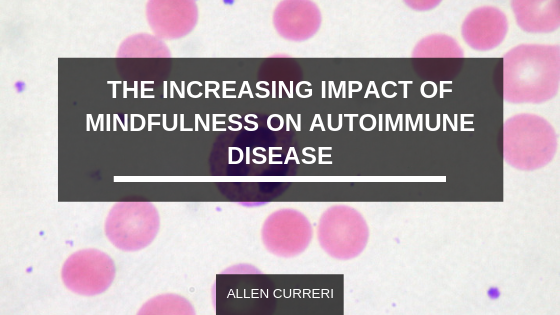The autoimmune disease spectrum is broad and comprised of numerous debilitating conditions, from broad disorders like multiple sclerosis and lupus to grey areas like Guillain-Barre syndrome and polymyalgia rheumatica. While these diseases can vary symptom-wise, mutually, they are almost always detrimental to one’s quality of life, and therefore prompt and effective treatment is crucial.
However, the unfortunate reality is that some autoimmune disorders are not fully curable, and others may go through an undulating pattern of flare-ups and remission. Both of these scenarios in mind, an increasing amount of autoimmune sufferers have turned to mindfulness as a means of mitigating symptoms and mending parts of the mind that have otherwise been beaten into a vicious cycle of hopelessness.
While mindful thought may not be a direct cure, it can help mitigate periods of stress and anxiety, which may exacerbate autoimmune symptoms and further hinder one’s day-to-day activities.
Addressing several issues
Mindfulness allows autoimmune sufferers to address multiple facets of their situation — both the chronic symptoms of their condition, from pain to intolerable fatigue and the mental exhaustion of fighting those symptoms, sometimes to no avail. The latter can also potentially apply to frustration stemming from countless unsuccessful doctor’s visits (as some autoimmune disorders are very hard to diagnose and can sometimes take years to properly identify).
Perhaps the most important application of the approach is self-empowerment — the rewiring of the mind to not accept disease symptoms as definitive of one’s whole being. Taking a fresh approach can keep one both internally stable and proactive in the external search for effective treatment.
Expanding horizons
Mindful meditation and thinking alone is a great means of addressing any chronic illness, as I have noted in previous blogs, but it is not the end all and be all of holistic treatment; others employ different strategies that are fundamentally similar, such as visualization, guided imagery, self-hypnosis, and mantra repetition to fully embrace the mind and use it to influence one’s perception of autoimmune symptoms, chipping away at their impact despite not actually eliminating them altogether.
These practices allow room for personalization; find what works best for you and apply it to the worst parts of your condition. Doing so can not only help you address the symptoms head-on, but it can also aid you in other curative and therapeutic activities like proper rest and cognizant healthy eating.


